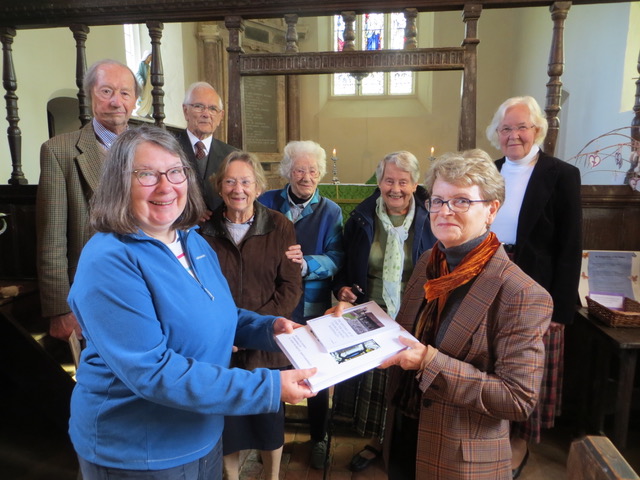Voices– In an exclusive interview, one of the Baptist church leaders in Bujumbura City reveals several reasons why Baptist communities often struggle to pray together, whether in Burundi or in other areas of Africa.
According to him, there are certain stereotypes that some church leaders associate with people committed to prayer—especially those who pray in groups. As a result, when a prayer group begins to form within a church, many leaders do not support it. On the contrary, they issue warnings and recommend closely monitoring these groups, fearing they might eventually cause disorder.
“Some pastors label these people as false prophets, rebels against authority, or view them as individuals who may eventually become uncontrollable,” he said.
But in reality, do all those who gather to pray have harmful or divisive intentions?
“The answer is no. The problem often stems from the fact that many pastors lack the spiritual capacity to guide or mentor these groups. Why? Because they themselves don’t take time to isolate themselves in prayer and seek the face of God. How then can someone lead or oversee intercessors if They do not pray?” explained Rev. Dieudonné Irambona in an exclusive interview with The Baptist Chronicle.
Pride among leaders: Another barrier to collective prayer
Another reason many people—especially leaders—don’t pray is because they tend to rely more on themselves than on the power of God, as said by Rev. Dieudonné Irambona.
He explained that many leaders believe they should make decisions based solely on their experience or level of education. Few actually take time to isolate themselves in prayer to listen to God’s voice and discern His will and direction.
He added:
“And yet, what God wants is far better than what we consider right or logical. How often does a leader truly take time to consult God in prayer before making a decision—especially when a solution seems obvious and the temptation is to act immediately?”
He also pointed out that sometimes, when a leader chooses to pray before acting, others perceive them as incompetent or hesitant simply because they didn’t take the seemingly obvious path—forgetting that they themselves never sought to know if that path truly had God’s approval.
That is why group prayer holds great value, especially when the Church desires to be led by the Holy Spirit and act according to God’s will rather than human reasoning, knowledge, or past experience.
“Just as the Holy Spirit intercedes for us with groanings that cannot be expressed—because He knows the perfect will of God—so must church leaders always seek to know what is on God’s heart. That way, in their action plans, they can work in alignment with His will rather than relying solely on their training or personal perspectives,” said Rev. Dieudonné.
God knows better than anyone the true needs of His people’s hearts, beyond what is outwardly visible. He is the One who searches hearts and reveals what lies deep within. That’s why we should never undertake anything without first consulting Him—as the Master of hearts and souls, and the Supreme Planner of perfect plans for human life.
Read also : https://baptistchronicle.com/chad-eight-young-christians-disappear-after-evangelism-arrests-in-ndjamena/
When prayer isn’t in the budget: A revealing oversight
According to Pastor Dieudonné, one major indicator of how prayer is often neglected is seen in how church activity budgets are planned.
How much of the budget is actually allocated to prayer during evangelism campaigns? How can we expect a large number of conversions at an event when no funds have been set aside for intercession? He asks
Even when prayer teams exist, they are often left without any budget support.
And yet, at the same time, significant amounts are invested in aspects that—while useful—do not directly impact the core goal of repentance and salvation. For instance, large portions of the budget are sometimes dedicated to purchasing musical equipment. Also, while preachers, protocol teams, or security teams receive minimal support, there is no budget dedicated to prayer in churches budget planning.
Read also : https://baptistchronicle.com/chad-eight-young-christians-disappear-after-evangelism-arrests-in-ndjamena/
Someone once said, “Where you spend the most money is where your heart truly lies.” Unfortunately, we forget that it is prayer that activates the powerful work of the Holy Spirit—the One who touches and transforms hearts. We all know that no human can truly convince someone to repent—only the Holy Spirit has that power.
So, why do we invest so much effort and resources in secondary elements at the expense of what can actually bring about the spiritual transformation we seek? He asks.
So, How should people pray?
The first step is to understand why we pray, even before asking how to pray. Many reasons can lead people to pray, but we can identify four main approaches commonly seen in the spiritual lives of believers:
- The Emergency (or Situational) Approach:
People pray when facing a crisis or unexpected situation (illness, accident, unemployment, fear, etc.). For example, someone who never prays may suddenly begin pleading with God when a loved one is hospitalized. In this case, prayer becomes a last resort. This kind of approach does not foster lasting spiritual growth—the person often returns to indifference once the problem is resolved.
- The Transactional Approach:
“Give me, and I will give you.” — “I give to receive.”
This is a business-like relationship: I pray, fast, or offer something so that God will answer me. People pray to obtain something in exchange for a promise or commitment. A concrete example: “Lord, if You give me this job, I promise to serve You for the rest of my life.”
Here, the relationship with God becomes a simple exchange of interests. The dangers are many: God’s love is perceived as conditional upon His blessings, and this approach can lead to disappointment when expectations aren’t met.
Read also :
- The Ritual (or Religious) Approach:
People pray out of habit, tradition, or social pressure—without life, heart engagement, or deep understanding. For example, repeating memorized prayers daily without thinking about their meaning, or praying only because one is at church.
In the life of faith: This can suffocate a living relationship with God. Jesus often condemned hypocritical, loveless prayers.
- The Relational Approach (Recommended):
Here, prayer is based on a living, intimate, and constant relationship with God. It’s not about need or obligation, but an expression of love, trust, and communion with the Father. For example, a believer who prays daily to thank God, speak with Him, and listen for His will—even in the absence of urgent needs.
This relational approach bears the most lasting spiritual fruit and reflects true maturity in the Christian faith. It nurtures a strong, sincere, and growing faith and leads to heart transformation and spiritual maturity. However, it requires time, patience, and sometimes trials to develop. It’s also less “spectacular” to those looking for quick results.
The relational approach in corporate prayer: A path to intimacy and alignment with God
The relational approach to prayer is rooted in sincere love, trust, listening, and intimacy with God—not in personal gain or routine. When practiced collectively, it releases a unique spiritual power capable of transforming an entire community.
- Corporate prayer becomes true spiritual fellowship: When a community prays together with a relational mindset, it’s not just a weekly ritual—it becomes a moment of unity where hearts seek God’s face together, not just His hand (His blessings). As a result, every prayer becomes a family conversation with the Father. [Acts 1:14 – “They all joined together constantly in prayer…” → Result: Pentecost. The Spirit came upon united, sincere, and hungry people.]
- Corporate prayer aligns the community with God’s will and produces lasting, visible fruit: More conversions, restored relationships, and a renewed passion for mission, service, justice, and worship.
Why the Baptist Community should embrace this approach?
The relational approach is faithful to the Baptist biblical heritage: a faith centered on the Bible, a personal relationship with God, and community life. It fosters authentic revival: God visits sincere hearts and communities that seek Him for who He is—not for His gifts. Moreover, it restores the ultimate goal: to glorify God and fulfill His will on earth as it is in heaven.
In conclusion, if the Baptist community fully embraces the relational approach in corporate prayer, it will enter into deep intimacy with God, walk in strong spiritual unity, and become a church centered on God’s heart—not on its own interests.
That is where God fully reveals Himself, speaks, transforms, and leads His people into works that have eternal impact.




